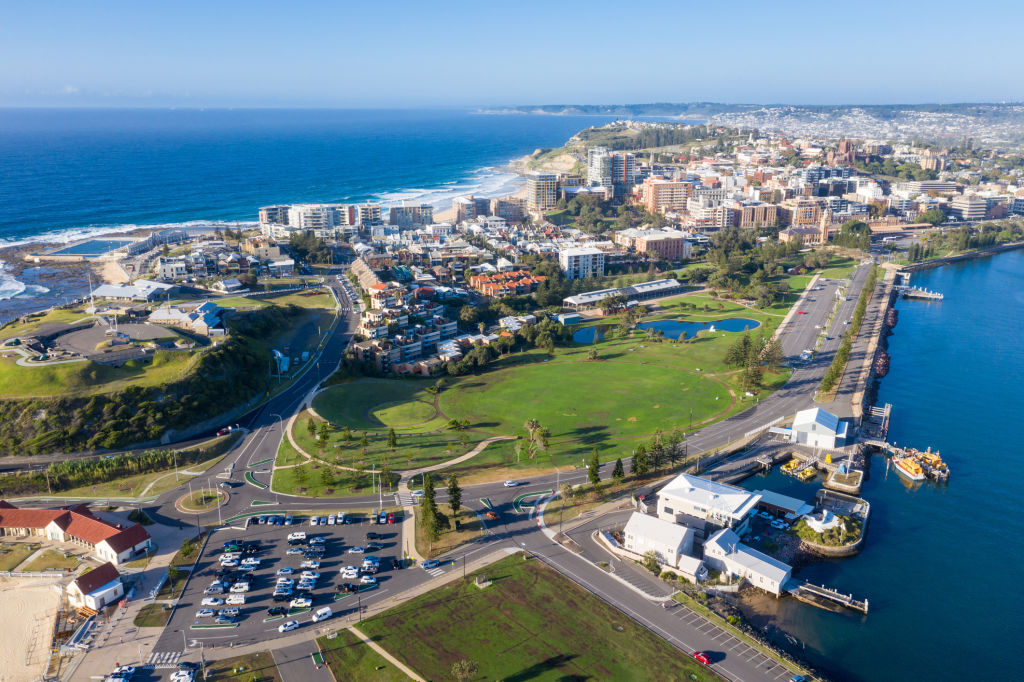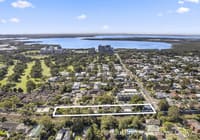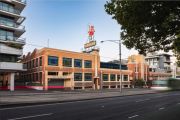
Hotel operators look to the regions in wake of COVID-19 pandemic
The pandemic-battered hotel industry is hoping for a regions-led recovery as direct bookings rebound in some areas within an easy drive of the big cities.
While many CBD and fringe suburban hotels are still operating at “sub-10 per cent” capacity, some regional properties report as much as 95 per cent occupancy.
“The pent-up demand for domestic travel when the restrictions were lifted was immense,” said Joe Adenorff of the Terminus Apartment Hotel, part of the group Choice Hotels Asia-Pac and located on the waterfront in Newcastle, NSW.
“December 2020 saw significant growth from the same period pre-COVID – about 10 to 25 per cent more bookings. The international travellers have gone, and most of our mid-week corporate travel has dried up, but they’re being replaced by leisure guests keen to get out of the house and away,” Mr Adenorff said.
Choice Hotels Asia-Pac (CHAP), the umbrella group of brands like Comfort, Quality, Clarion, Ascend and EconoLodge, has more than 60 per cent of its hotels located in regional areas and has seen similarly encouraging signs.
Direct bookings for 2020 were strong with a 65 per cent year-on-year increase in December 2020, while visits to the CHAP website have also increased in the past three months by more than 65 per cent.
The good finish to a generally terrible year for the accommodation sector has proved a welcome fillip.
“It’s been better than we expected and I think what we’re seeing, we’re calling it ‘revenge travel’,” said Trent Fraser, CEO of CHAP, which has been investing in more advertising as travel restrictions have eased across the country.
“With international borders closed and a lot of our communities in Victoria and other parts of Australia having been restricted in their travel, they’re now seeing an opportunity to explore locally. Some people, who would normally travel, have built up their savings during the pandemic too, so they’re not reluctant to spend money on local attractions, food, wine and produce. It’s really positive,” he said.
While there are some star performers in the group, like Newcastle’s Terminus, generally most regional hotels are still down on past years.
Occupancy is mostly around 50 per cent, down from 60 per cent occupancy across the board at the end of 2019, although the figures have still defied the gloomier predictions of a 25 per cent reduction.
Mr Fraser believes it will still take time for the industry to recover, perhaps towards the end of 2022 or early 2023.
Border confusion the great unknown
A major unknown factor is the lack of a national policy on state borders.
“There’s still an overwhelming reluctance to cross the borders because they can be lifted or closed at any time and people don’t want to risk going into quarantine or getting stuck somewhere,” said Margy Osmond, CEO of Tourism and Transport Forum. “While there’s no set of uniform responses, tourism will continue to suffer.”
It has already suffered among the most of any industries. In 2019, the tourist sector employed around 1.25 million people in permanent positions in Australia. Ms Osmond says latest estimates put jobs lost at 506,000 over the past six months, with another 318,000 expected to disappear with the end of JobKeeper.
While some regions are doing extremely well, like Newcastle, Byron Bay and Orange in NSW, and the Mornington Peninsula in Victoria, others, like Far North Queensland, are really struggling, she says.
“It seems that locations that are about a two to four-hour drive away are enjoying a bonanza, as people feel safer in their cars, but further away is much harder.”
At Quest Apartment Hotels, with 45 per cent of properties in regional areas, COO David Mansfield says forward bookings in regional NSW are generally running at just over 70 per cent when normally they might be 85 per cent. Regional Victoria is at 75 per cent.
“That’s obviously encouraging, and we’re confident that growth will continue,” he said.
“We do feel that the regional centres are certainly the backbone of getting us out of this mess.
“The metro areas, CBD and fringe, are starting to see some bookings come back too, which is a hopeful sign, but the uncertainty over borders is really affecting the sector.”
Regional hotels are still having to work harder to attract local visitors, though. In Bendigo, Victoria, Kelly Sullivan of Quality Hotel Lakeside, says things are moving in the right direction, but it’s different catering for this new group of visitors, rather than internationals, corporates and interstates.
They’re making short lead-time bookings, sometimes booking on the same day as arrival, and deciding how long to stay when they check-in. They’re also seeing more families.
“And we’ve had a lot of Melbourne visitors who’ve never been here before!” she said.
Tourism Accommodation Australia CEO Michael Johnson says the outlook is cheerier, but the reality is still sobering.
“It really is a two-speed recovery as some of the regions are doing extremely well if they’re in holiday spots, but CBD hotels are operating at sub-10 per cent levels,” he said.
“It’s good to see some of the regions doing well, particularly after suffering drought and bushfires and floods before COVID hit, but others will need additional government support to survive.”










